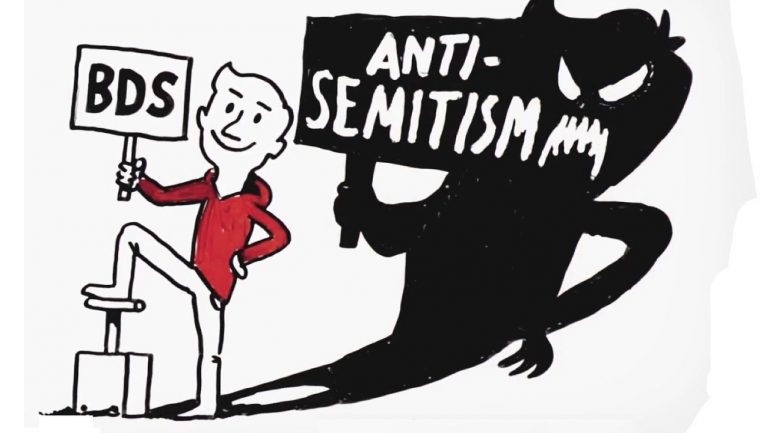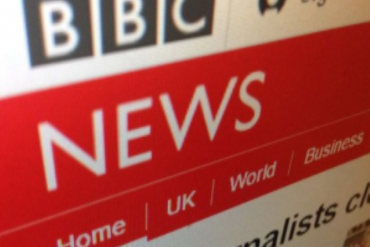1) BBC Watch has often documented the fact that when reporting on the Boycott, Divestment and Sanctions (BDS) campaign against Israel, the BBC fails to inform its audiences what that campaign aims to achieve. In August 2015, we also learned that the BBC considers the provision of that obviously crucial context “not our role“. Rabbi Lord Jonathan Sacks has produced an essay and a very useful video explaining what lies beneath the BDS campaign.
2) We have in the past noted on these pages that the BBC’s standard portrayal of the 2013/14 talks between Israel and the Palestinian Authority – “came to an end amid acrimony in April 2014” – fails to provide its audience with an accurate and adequate view of events at the time and indeed impairs understanding. At ‘The American Interest’, one of those who took part in that round of negotiations, Michael Herzog, gives his account of what happened.
“But today feels somewhat different. To break the logjam, Israel suggests transferring to the PA the responsibility for planning and zoning in Palestinian-populated parts of Area C in the West Bank that are adjacent to Palestinian cities. The new proposal seems to capture the Palestinian negotiator’s attention. “We may be in business,” Palestinian chief negotiator Saeb Erekat signals, careful as always to remain non-committal. As we are about to adjourn, he asks to meet tomorrow to continue our discussions. The clock is ticking. Palestinian President Mahmoud Abbas (whom we all refer to by his familiar moniker, Abu Mazen) has already called for a formal leadership meeting in Ramallah that coming Saturday to decide the fate of negotiations. Yet, for the first time in weeks, we feel a sense of cautious optimism—a feeling shared by our American counterparts.
The events of the next day would shatter these nascent hopes. Gathering at the Prime Minister’s office to prepare for the crucial meeting with our counterparts, we (and separately, our American colleagues) are surprised to watch the signing ceremony of a reconciliation deal between Abu Mazen’s Fatah movement and the Islamist Hamas in Gaza. On the Israeli side, there is a volley of questions. Abu Mazen is well aware of Israeli and U.S. sensitivities regarding Hamas—which is strongly opposed to peace and the recognition of Israel, and designated by the U.S. government and the European Union as a terror organization—so why did he not at least alert us to the imminent deal? Why would he sign it the day after he seemed to promise a meeting with us and just a few days ahead of the nine-month deadline? Is he no longer interested in extending negotiations?”
3) Back in 2013 we noted that restrictions on foreign journalists introduced by the Palestinian Authority’s Ministry of Information and the Fatah-controlled Palestinian Journalist’s Syndicate (PJS) had not been reported by the BBC. Last year we noted the introduction of further restrictions and the fact that one of the instigators – the chair of the PJS, Nasser Abu Baker – concurrently works for AFP. Abu Baker was recently in the news again and CAMERA’s Tamar Sternthal has the whole story.
“Following an exclusive exposé by CAMERA (Committee for Accuracy in Middle East Reporting in America) in early December about the inherent conflict of interest posed by Abu Baker’s participation in the Seventh Fatah Congress and his failed election bid to join the Fatah Revolutionary Council, the influential Agence France-Presse last month slapped him with a week’s suspension and withheld his salary. Participation by journalists in political events, especially those they are covering, is a serious violation of Agence France-Presse’s commitment to “rigorous neutrality” and its pledge that it “is independent of the French government and all other economic or political interests.”
Enter the International Federation of Journalists, which suspended its stated commitments to truth and opposition to discrimination with its Febrary 2 statement about Agence France-Presse’s sanctions against Abu Baker.”
The UK’s National Union of Journalists is a member of the International Federation of Journalists. The NUJ is the second largest union within the BBC with around 4,000 members.





